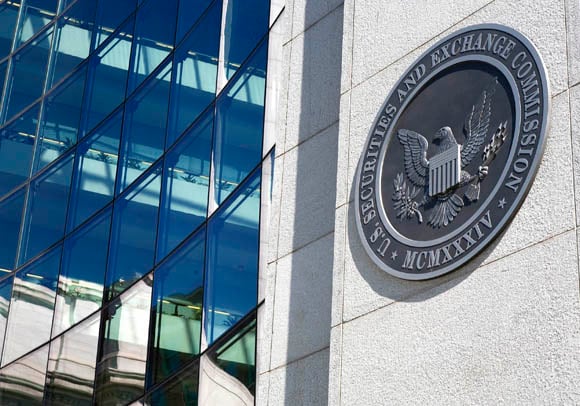Letter details how a universal standard could accommodate brokers
The major lobbying group for large broker-dealers today urged the Securities and Exchange Commission to develop a new fiduciary standard that would be applied on an “account-by-account basis” and be spelled out in an agreement at the start of an adviser-customer relationship.
In anticipation of the agency's moving ahead with a rule that would require broker-dealers to meet the same requirements as investment advisers — acting in a client's best interests — the Securities Industry and Financial Markets Association laid out in a letter to the SEC what it called a fiduciary framework.
Under the proposal, the standard of care would be articulated in a customer agreement at the outset of an advisory relationship. The standard would “apply on an account-by-account basis” and would exempt the charging of commissions or other fees, such as marketing and distribution fees for mutual funds or revenue sharing.
SIFMA reiterated its support for a uniform fiduciary standard but cautioned that the way it is put in place is critical. The organization warned the SEC not to apply the Investment Adviser Act of 1940 to broker-dealers because doing so would “negatively impact [consumer] choice, product access and affordability of customer services,” the letter states.
“We believe that a wholesale extension to broker-dealers of the general fiduciary duty implied under the Advisers Act is not in the best interests of investors and is problematic for the broker-dealer business model,” said the letter, which also lays out guidance on the definition of retail advice and on disclosure parameters.
Instead, SIFMA is asking the SEC to create a new fiduciary duty — through parallel rule making under the Investment Advisers Act and the Securities Exchange Act of 1934 — that accommodates broker-dealer activities that would violate the 1940 law.
The Dodd-Frank financial reform law gives the SEC the authority to write a universal fiduciary-duty regulation. The agency delivered a study to Congress in January recommending such a standard to better protect investors and said it would follow-up with rule making later this year.
“The status quo should be over for both the investment adviser and broker-dealer sides,” said Ira Hammerman, SIFMA general counsel. He said the SEC should “roll up its sleeves” and work on a new standard because “they have a lot of latitude to come up with a fresh approach.”
One fiduciary advocate said that disagreements will continue over the details of a fiduciary-duty rule but that SIFMA's letter signals that the idea will maintain its momentum.
“This allows us to fight another day instead of just killing it, which in this political environment they have the opportunity to do,” said Barbara Roper, director of investor protection at the Consumer Federation of America.
Although SIFMA is in favor of the universal fiduciary standard, “the ‘how,' of course, is very important,” Mr. Hammerman said.
SIFMA suggested that the SEC “provide the necessary rule-based guidance regarding when the fiduciary duty begins and ends and what disclosures and consents, if any, are necessary to satisfy the duty” under circumstances where a broker-dealer gives “advice involving principal trading, structured products, hybrid accounts, complex investment strategies, concentrated positions, and receipt of commissions and differential loads for different products.”
The organization also suggests that fiduciary duty not apply to “introductory discussions regarding the nature of the relationship” between a broker and a customer.
This is a detail on which Ms. Roper disagrees.
“You cannot limit the scope of fiduciary duty through contract,” Ms. Roper said.
David Tittsworth, executive director of the Investment Adviser Association, asserted that the SIFMA letter does not provide any evidence that the current fiduciary duty that investment advisers meet is impossible for broker-dealers to adhere to.
“They are very uncomfortable with the well-established principles-based fiduciary standard under the Advisers Act,” Mr. Tittsworth said. “That's crystal clear.”
Congress did not intend for broker-dealers to live under a 1940 Act fiduciary duty, according to the SIFMA letter. The Dodd-Frank law gives safe harbor to the charging of commissions and the selling of proprietary products and a limited menu of products. It also stipulates that broker-dealers don't have a continuing obligation to clients after the sale of a product.
The SIFMA letter reiterates these points because the SEC study did not explicitly say that the SEC should not foist the Advisers Act on broker-dealers, according to Mr. Hammerman.
“Don't let anyone convince you that brokers are trying to water down and have a shortcut to a fiduciary standard,” Mr. Hammerman said. “We need guidance as to how firms can comply with that standard while providing worthwhile services and products that investors need and want.”







